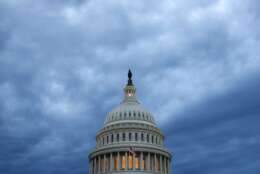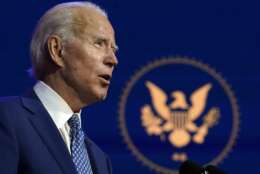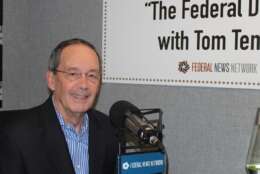Bob Tobias
-
As Congress prepares to spend relatively more money than it spent on World War II, the question arises whether the federal workforce even has the capacity to carry out whatever programs the coming money will spawn.
July 23, 2021 -
If the Biden administration's 2022 budget request holds, many agencies would gain net new employees. That means good practices in onboarding new people will be more important than ever.
July 02, 2021 -
Many employees want to return to their offices not because they're so great, but because they want to renew human connections weakened over the past year.
June 04, 2021 -
Every government employee gets a step-pay increase whether they deserve it or not. Supervisors say too many people aren't suited to their jobs or even unwilling to do them.
April 30, 2021 -
The Office of Personnel Management is the object of a long list of reform recommendations from the National Academy of Public Administration. What Congress will do with them is anyone's guess.
March 26, 2021 -
Whatever plans federal agencies had to guide a return to offices, well, those seem to have evaporated months ago, Bob Tobias said.
February 26, 2021 -
After finishing a year dealing with a horrible pandemic, the new year opened with total breakdown at no less than the U.S. Capitol. But it's not hopeless.
January 22, 2021 -
For a few more ideas, Federal Drive with Tom Temin turned to American University Key Executive Leadership Program professor Bob Tobias.
December 23, 2020 -
A coalition of good-government groups has focused on the Trump administration plan for policy-related career jobs known as Schedule F. They feel it represents a general alienation of the federal workforce.
December 04, 2020 -
President-elect Biden has promised unions he'll repeal the 2018 executive orders designed to limit collective bargaining and official time. But simply repealing them won't immediately resolve issues.
November 20, 2020 -
The incoming Biden administration has plenty to learn from its predecessors about setting the tone, supporting productive labor-management relationships and using existing data to effectively manage the federal workforce.
November 11, 2020 -
The debate over the Trump administration's order to create a new civil service Schedule F - most of it has focused on the effects on career employees. But what about the public?
November 04, 2020 -
As the pandemic and teleworking drag on, people stuck at home are starting to discover the secondary effect of isolation from coworkers.
October 14, 2020 -
The idea of pay for performance has appeal in the federal workplace. But is it true? American University professor Bob Tobias is skeptical.
September 18, 2020 -
The decision from the Trump administration to deny recognition to federal senior executives this year is rubbing some people the wrong way.
July 22, 2020








